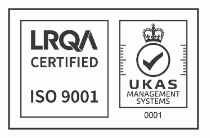Why is gender equality at the workplace important?
When discussing gender equality at the workplace, we are often asked why this issue remains relevant and topical in today’s context. Surely, with all the legislation we have in place, gender equality has now been achieved? In Malta, more women are working than ever before – over 73%, more even than the EU average of 69% (MaltaToday, 2023). One might think that these statistics indicate that women are making full use of their equal right for gainful employment, and the matter of gender equality at work should be put to rest.
However, gender equality at work goes much beyond whether or not an organisation employs women. In the workplace, this means ensuring that women and men have access to the same opportunities for advancement, receive equal pay for equal work, and are treated fairly in all aspects of professional life. It is here where we still find much room for improvement across the board. A lot of work, and a lot of legislation, has gone into eliminating much of the overt discrimination that women faced when they first started entering the workforce, such as blatant underpaying or barring them from high management. Nowadays, the challenge is tackling the more subtle forms of inequality – those that arise from subconscious bias, societal norms and mainstream beliefs, and ingrained company cultures that may inadvertently marginalise women.
It is precisely because these are subtle forms of discrimination – but which have profound impacts on the lives and careers of individuals – that it can be difficult for organisations to identify and address what the problems are, and what to do about them. Understanding these challenges is the first step toward advocating for a more equitable workplace. It is essential for organisations to not only recognise the value that all individuals bring but also to actively create environments where they can succeed.
Investing in a more inclusive workplace is not just necessary because it is fair and ethical – it is also fundamental to an organisation’s success. Diverse teams, which include a balance of genders, are more likely to be innovative and creative. Research has shown that companies with gender-diverse leadership teams perform better financially and make better decisions. By promoting gender equality, companies can also attract and retain top talent. People increasingly prioritise working for organisations that demonstrate a commitment to diversity and inclusion. Creating a gender-equal workplace fosters a positive, supportive culture that benefits all employees, not just women who are traditionally the targets of such measures.
What can you do about it?
Within the context of the EU-funded WINBLUE project (Empowering Women and Mainstreaming Gender Equality in the Blue Economy), AcrossLimits and ISDI are co-organising a free gender equality training for Malta-based organisations who work in the blue economy (e.g. tourism, fisheries, maritime, biotechnology, aquaculture). During the training, we will:
- Introduce the basic concepts of gender equality;
- Put into context today’s gender equality challenges and how these impact the workplace;
- Understand the need and relevance of Gender Equality Plans for organisations.
- Learn how to plan and implement a Gender Equality Strategy, using WINBLUE tailored templates as a guide.
- Learn about and share practical strategies to promote gender equality in the workplace
- Strengthen networks with other stakeholders
Detailed agenda can be found here. The training is taking place on Monday 25th November, at the Brewhouse, Birkirkara, from 09.30 – 13.30.
Interested individuals can register to attend via Google Form: https://forms.gle/ASrb869vwBWvitR79
A certificate for attendance will be given, and the training includes a complimentary coffee break and a networking lunch.
WINBLUE is funded by the European Union. Views and opinions expressed are however those of the author(s) only and do not necessarily reflect those of the European Union or the European Climate, Infrastructure and Environment Executive Agency (CINEA). Neither the European Union nor the granting authority can be held responsible for them.



